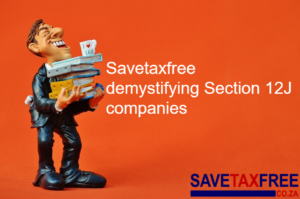Budgeting rules – let’s go 50/30/20.
Related Articles
Putting away a bit of cash every month now will make all the difference in your golden years. Remember, a penny today becomes a dollar tomorrow.
By Timothy Sithole | 4 November 2019
It’s extremely satisfying to spend money – especially if you’ve sweated for it. But spending it on the wrong activities without putting a few dimes away puts you at great risk of serious financial discomfort in your old age.
US Democratic Party presidential candidate Elizabeth Warren, in her book, All Your Worth: The Ultimate Lifetime Money Plan, outlined the 50/30/20 budget rule and said: “Everything we stand for can be expressed in terms of how we spend our money.”
The best time to start saving is now, and that’s what the 50/30/20 budget rule is about. Let’s break it down:
50: This is the percentage of your salary that you allocate for your basic needs, the essential things for your survival. This includes your mortgage/rent, transport, groceries, utilities and anything else that needs to be paid on time.
It’s very important to allocate the bigger chunk of your budget to this because, say you don’t pay the rent, where will you sleep?
And if you’re in the fortunate position where your basic needs cost less than 50% of your income – don’t splurge it. Save!
30: This is for all expenses that can arise during the month including your fun activities – and those are necessary so that you don’t arrive at work on Monday feeling like a robot. If you have managed to work hard, you’re also entitled to play hard (for a bit).
20: Lastly, but probably the most important, is the 20% you allocate to saving for your future plus a few of those important expenses.
Let’s create a few scenarios.
Tom has just started working and has a considerable amount of student debt to pay back. Brad, in contrast, has been working for a few years and is looking at investment platforms to grow his money. They can both use the 50/30/20 budget rule – but of course, for different purposes.
*Not compulsory
**Student debt calculated from the NSFAS salary reduction table
Tom is earning a decent income and running a disciplined budget. He will be on track to achieve all his savings goals. He is in charge of his student debt and his monthly expenses are on par with the 50/30/20 budget, while he’s also saving for his future by investing 15% of his gross income into a retirement annuity (the recommended amount).
With his remaining R3 140 a month, he can choose to invest in a TFSA for any big-ticket item that he would ideally like to buy in the future such as a house or a car (or even pay off his student debt early). Let’s say he chooses a TFSA cash account with African Bank – which offers the best interest rate of 8.67% a year for cash deposits. By saving R2750 a month to reach the maximum tax-free amount allowed in a year, R33 000, then over five years he will earn R41 000 in compounded interest – free of tax. The investment will total R206 000.
It’s possible to get even better returns on the stock market but there’s risk involved – you may lose some or all of your investment. But Tom is young and can afford some investment risk, and over the longer term, equities historically have outperformed cash investments. To compare, savetaxfree’s investment tool projects a return over five years of R45 660.50 if invested in a medium-risk, multi-asset fund TFSA investment. That would bring the total amount to R210 660.50.
Those are huge savings that any of us should aspire to and they are all possible if you start being wiser now with your money.
Now we look at Brad:
With only R2 376.04 of his gross income left after deductions and expenses, Brad does not have much to put away and this is a reality that most South Africans live with. Still, he can add that to his retirement savings.
But his advantage is that he is married and his spouse’s salary can help the family as a collective reach their savings goals and to give their child a better future by investing in her own TFSA to help with university fees when the time comes.
We have seen with both these characters that it’s not easy to save money. Tom has student debts that need to be paid while he needs to look at things like buying a home. Brad has already bought a home and has a family – so he has different priorities. Both are doing considerably well relative to South Africa’s shocking household savings rate of -0.20%, according to TradingEconomics.
BusinessTech reports that as many as 40% of South Africans do not have any formal retirement savings. The country’s horrendously low savings rate is in fact the main reason that National Treasury introduced tax-free savings in 2015.
The 50/30/20 budget rule applies not only to Tom on an entry-level salary but also to Brad who has been working for several years and it extends to anyone who can afford to save more than 20% of their salary.
None of this is easy but it’s important. A few sacrifices now (do you really need those pointy Monk strap shoes?) will be well rewarded in the long run – and here think of the magic of compound interest. That’s a topic we’ll tackle later in the series, along with other important guidance so that together we can be a formidable force towards being wiser, tax-saving South Africans.






